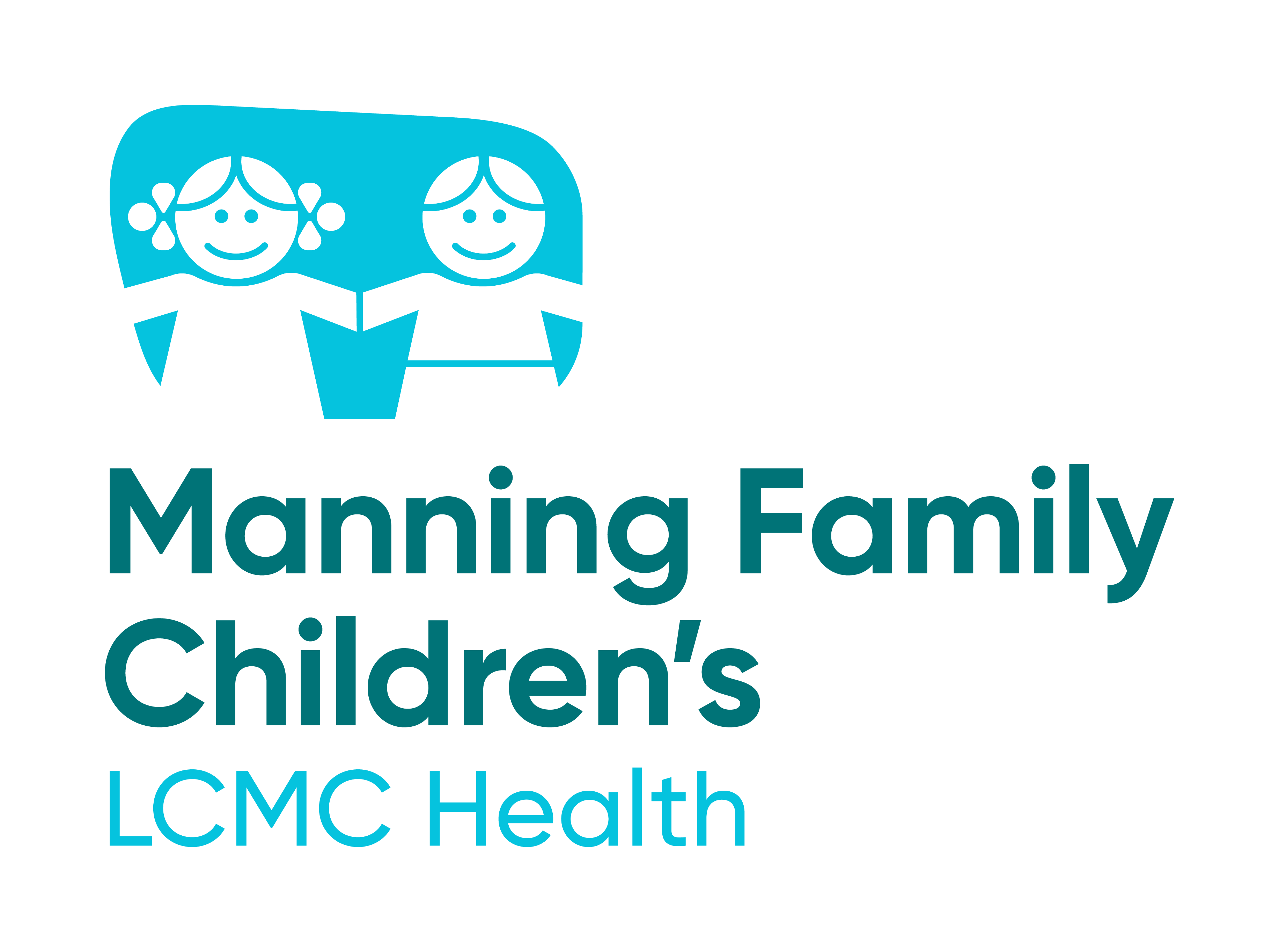Tiny but mighty: Avery’s 147-day NICU journey at Manning Family Children’s
- Category: Neonatal ICU
- Posted on:
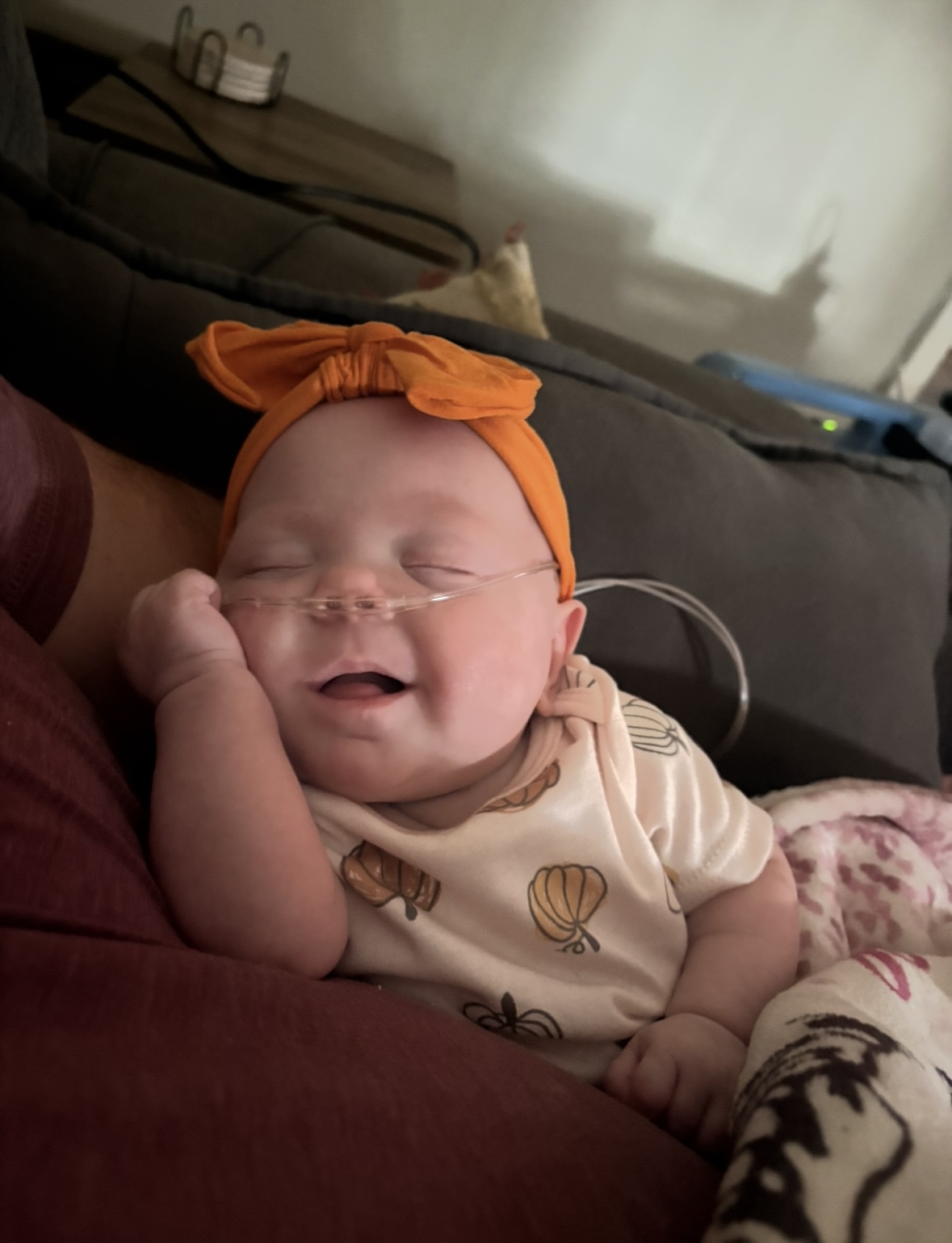
In late 2024, Emily and Doug Schalmo found out that they would be welcoming a new member to their family. The timing seemed perfect as Emily had just finished her medical residency, and they had settled down in Hattiesburg, Mississippi. Over the next couple of months, the couple stayed busy with work and preparing the nursery for their new arrival. But in early May 2025, at just 24 weeks pregnant, Emily didn’t feel well. She had traveled to Salt Lake City for a work conference and attributed her symptoms to the altitude, assuming she would feel better once she returned home to Mississippi.
“But by the time I got home, I felt much worse,” Emily said. “I asked my clinic manager to run some tests, and we found out my blood pressure was dangerously high, and there was protein and blood in my urine. Something was very wrong.”
As a physician, Emily knew her test results pointed to possible preeclampsia, a pregnancy complication that causes high blood pressure and can damage organs. “I felt terrible, and I was starting to swell around my ankles, face, and abdomen,” she said.
She was immediately evaluated by the obstetrics team at her local hospital. Despite multiple medications to help lower her blood pressure, it remained dangerously high. When Emily developed severe symptoms of preeclampsia, her care team made the decision to deliver the baby by Cesarean section at just 25 weeks and three days gestation. On May 8, 2025, baby girl Avery was born weighing only 1 pound, 6 ounces. 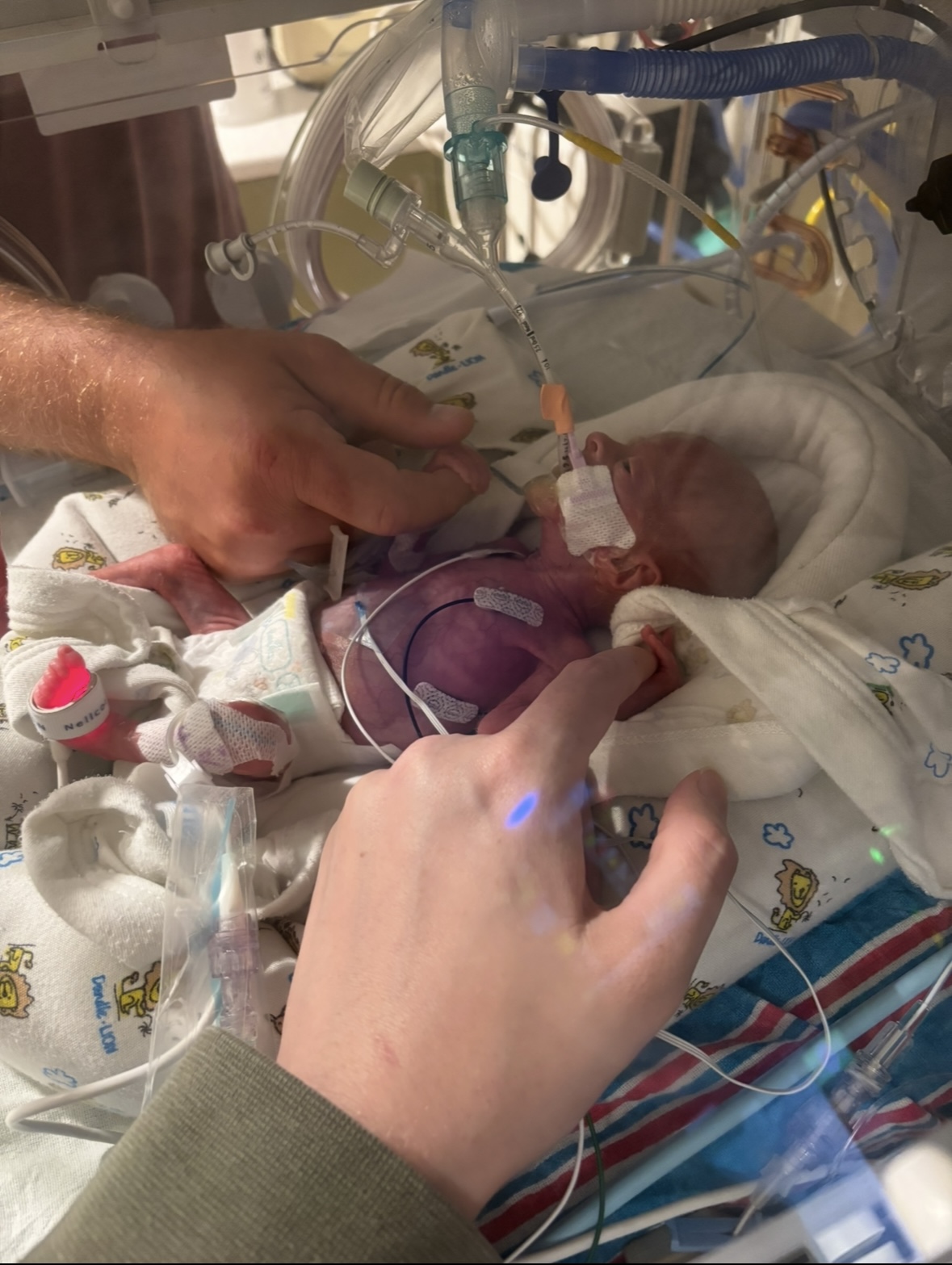
She was rushed to the Neonatal Intensive Care Unit (NICU). “She was tiny but spunky,” Emily said. “A few days later, it was Mother’s Day. That’s when they told us Avery had about a 50/50 chance of surviving because she was born so prematurely. We were devastated.”
A lifesaving transfer to Manning Family Children’s
Emily and Doug were determined to do whatever it took to improve Avery’s odds. As it turned out, Avery was quite the fighter herself.
“Avery became very sick and her team knew she needed more specialized care than they could give us at the hospital in Mississippi so we agreed to have Avery flown to New Orleans to Manning Family Children’s,” Emily explained. “I don’t think I will ever forget Chanie, the flight nurse. She arrived on the helicopter and immediately took command of the room. She promised to take good care of my baby. It really built my confidence that Avery would make it through that flight.”
Emily and Doug drove two hours to NOLA as Avery was in flight. “It was the worst drive I’ve ever been on in my life,” Emily said. “We were beside ourselves. We had no idea what was happening or what was going to happen once we got to Manning Family Children’s. We just knew our baby was very sick.”
When Avery arrived at Manning Family Children’s, she was greeted by two doctors – Michael Evers, MD, and neonatologist, Dana Rivera, MD, who worked quickly to stabilize Avery.
“They called to tell me they needed to treat an abdominal infection right away, but they were having trouble getting IV access because Avery was so tiny and fragile,” Emily said. Avery ultimately required a surgical procedure in her neck so the team could access her tiny veins for the IV. Emily and Doug continued to receive phone updates from Avery’s nurse, Jamie, while they drove to New Orleans.
“Nurse Jamie was our biggest comfort on transfer day. She supported us through the scariest day of our lives,” Emily and Doug agreed.
For the next 147 days, Avery embarked on her journey to recovery under expert care in the Level IV Neonatal Intensive Care Unit (NICU) at Manning Family Children’s.
Surgeries, setbacks, and small victories
Avery’s early days were extremely fragile. In late May, she developed a bowel perforation—a hole in her intestine—that required emergency surgery. She later needed another procedure to establish IV access in her leg. Fortunately, Manning Family Children’s had the right surgical team for the challenge. Pediatric surgeons Jessica Zagory, MD, and Adele Williams, MD, performed the procedures and helped get Avery on the road to recovery.
During those weeks, NICU nurse Caitlin became a key part of Avery’s care. “Avery developed complications from her surgical drain and Caitlin was a huge advocate for getting it taken care of right away. That’s when I knew Caitlin was going to be our primary nurse,” Emily said. “There was no question in my mind, Caitlin would do everything for Avery that needed to be done. It was so comforting to know that she and all the other nurses were there for my baby and for my family.” 
By June, Avery was finally strong enough for her parents to hold her for the first time. However, later that month, she developed two types of pneumonia and tested positive for MRSA (methicillin-resistant Staphylococcus aureus) in her blood. Caused by staph bacteria, MRSA is resistant to many antibiotics, making it an especially serious infection for a fragile NICU baby to battle.
Avery was put back on a ventilator, and Emily and Doug were told the facts: “They said she was very, very sick,” Emily said. “She needed one-to-one nursing care for a couple of days.”
Respiratory therapists Chuck, Ellie, and Lisa, were pivotal in getting her through her sickest days. “They were literally lifesavers,” Emily said. “They were so invested in Avery and advocated when she was finally ready to have her oxygen reduced.”
As a physician herself, Emily knew exactly what was happening. She knew the doctors and nurses at Manning Family Children’s fully respected her medical expertise but was relieved to just be Avery’s mom in those touch-and-go days. By July 11, after a rollercoaster of ups and downs, Avery was taken off the ventilator.
Expert care from every corner of Manning Family Children’s
As Avery began to recover, new challenges emerged. Doctors discovered tiny fractures in her arms, ribs, and legs. “It was really scary,” Emily said. “We were afraid to change or even hold her. We let the primary nurses handle most of her care because we didn’t want to hurt her. Our nurses were so patient and kept working with us until we felt more comfortable.”
Neonatologist Staci Olister, MD, oversaw Avery’s care in the NICU while she battled pneumonia and was the one who discovered the fractures. Dr. Olister coordinated with the hospital’s genetics, endocrinology, and orthopedic teams to ensure Avery received comprehensive care. Although the fractures were concerning, Dr. Olister wanted to rule out any underlying bone disease and confirm that the fractures were related to Avery’s extreme prematurity—which, fortunately, they were.
“Dr. Olister and all of the specialists we saw made us feel so much better,” Emily said. “It was amazing that Avery could be in one place and receive so much attention from so many specialists. Our hospital back in Mississippi doesn’t have access to that level of specialized care, and she wouldn’t have received the same kind of attention there.” 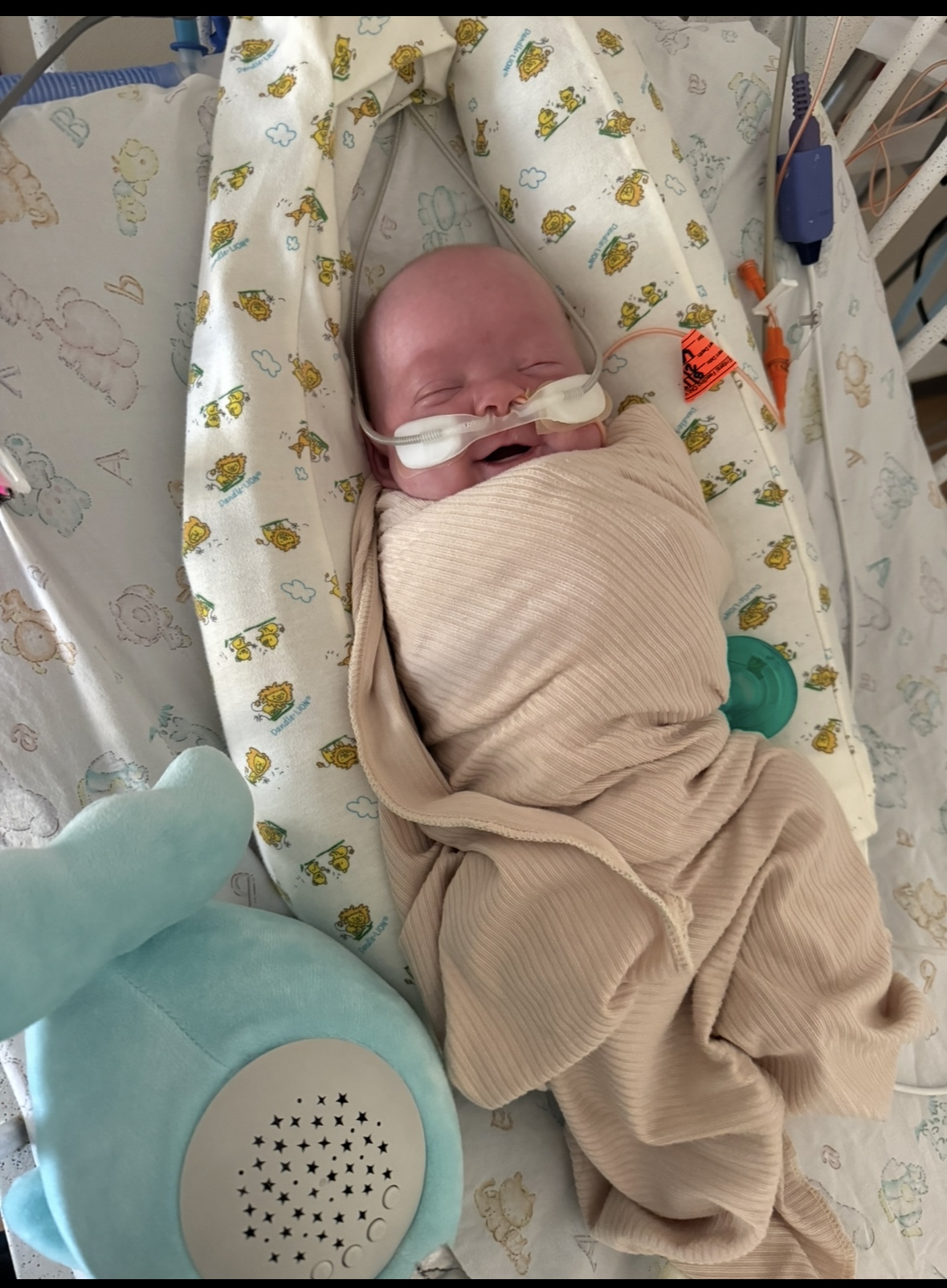
Physical and occupational therapists also played a key role in Avery’s care. “They noticed she wasn’t moving her left arm during a therapy session, and that’s how they discovered one of the more serious fractures,” Emily recalled.
In late July, Avery faced another hurdle: retinopathy of prematurity, a condition where abnormal blood vessels grow in the eye. Thankfully, Manning Family Children’s had all the specialists in one location. She received injections in both eyes on July 26 and began to recover again.
Her final milestone before going home was learning to take a bottle. The speech therapy team worked closely with Avery to help her feed effectively and safely. She was eager to take a bottle—and even more eager to go home.
Finally home, Avery is thriving
After 147 days in the NICU, Avery went home on October 2. She left with oxygen and a nasogastric (NG) tube, which helps deliver food directly to the stomach, and continued care from the respiratory therapy team. Within a week, the NG tube was removed by her pediatrician.
Today, Avery is thriving. She weighs 10 pounds, is holding her head up, and loves to smile at mom, dad and anyone else who looks her way.
“She’s such a tough girl,” Emily said. “There’s no question about it: Avery will survive and thrive at whatever she sets out to do in life. She’s a fighter for sure.”
Gratitude for the Manning Family Children’s team that became family
Emily and Doug will never forget the team who stood by them for those many months. They all offered support, comfort and, Emily said, a degree of calmness that she and Doug found especially helpful. They also credit nurses Nicole, Abigail, Caitlin, Kayla, and Hasani with helping their baby girl day and night. 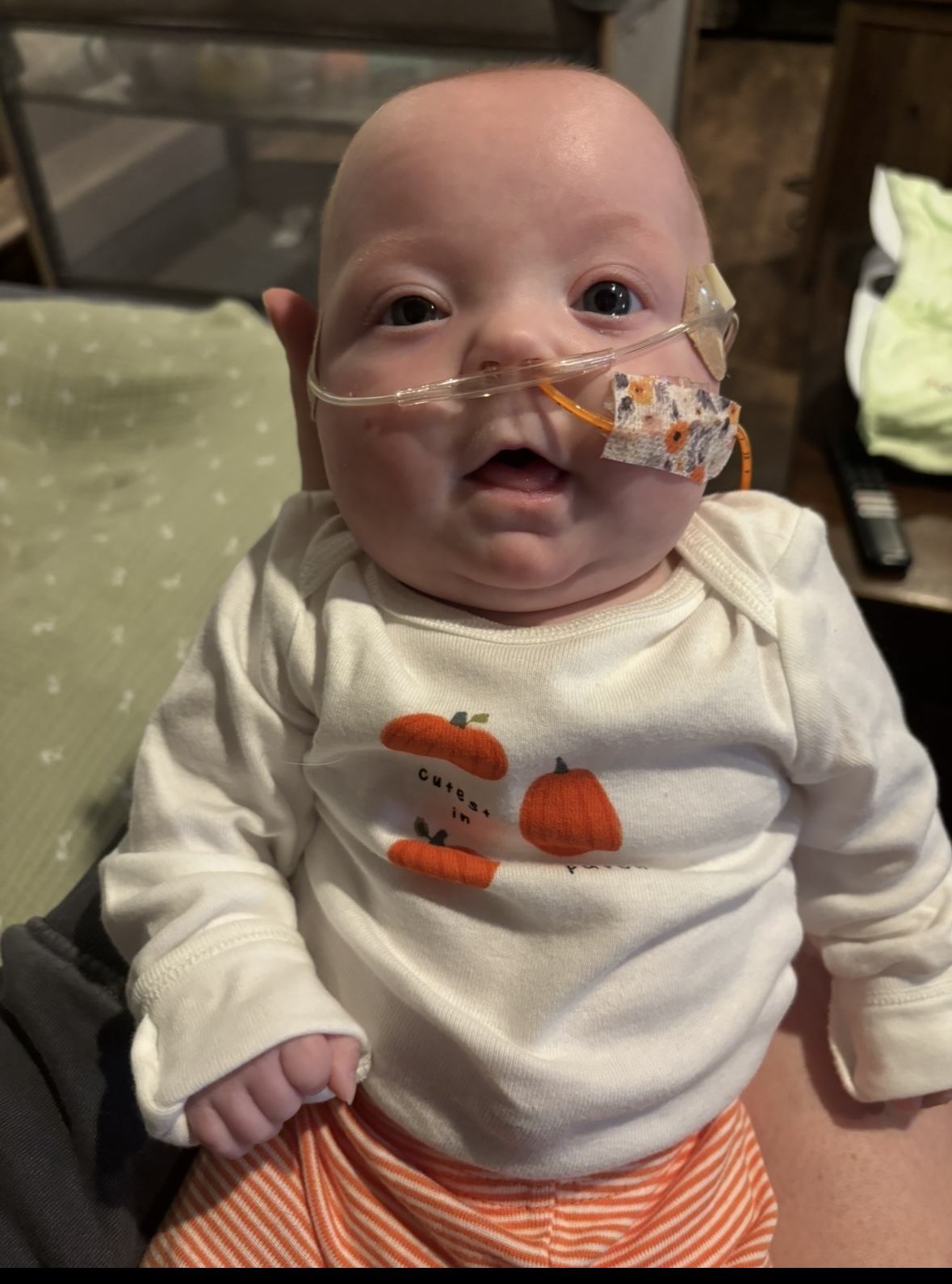
“They became family over the months. All of Avery’s nurses were wonderful. They were our bright lights,” Emily said. “They made us feel confident when we were scared. Having to be two hours away, because I had to go back to work, was hard. Knowing that they took care of Avery as if she was their own when we could not be there made it just a little easier.”
Her doctor, nurse practitioner and resident team at Manning Family Children’s were a huge driving force for Avery’s success – not just from a medical perspective, but from a social aspect.” Neonatologist Jessica Patrick-Esteve, MD, would come and visit with Avery even when she wasn’t assigned to her care which truly demonstrated how much they cared about our baby,” Emily said.
Now, as they adjust to life at home, Emily and Doug are simply grateful.
“Someday, all this medical stuff will be a blip,” Emily said. “She’s a tough, tough girl and I think all of this has made her more resilient. She’s a very special baby.”
To learn more about the Level IV NICU at Manning Family Children’s, visit https://www.manningchildrens.org/services/critical-care/neonatal-intensive-care/
